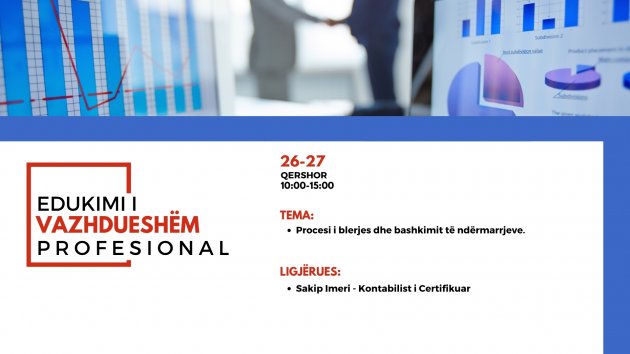
-
SCAAK part of the International Conference of EFAA
The President of the Board of SCAAK, Mr. Adrian Alo, represented SCAAK at the International Conference of the European Federation of...
-
Thirrje për regjistrim në programet e ShKÇAK për sesionin SHTATOR 2025
-
Marrëveshje bashkëpunimi në mes të ShKÇAK dhe IEKA




